The Global Interest Rate Crisis of 2023: Implications for Economy and Stock Market
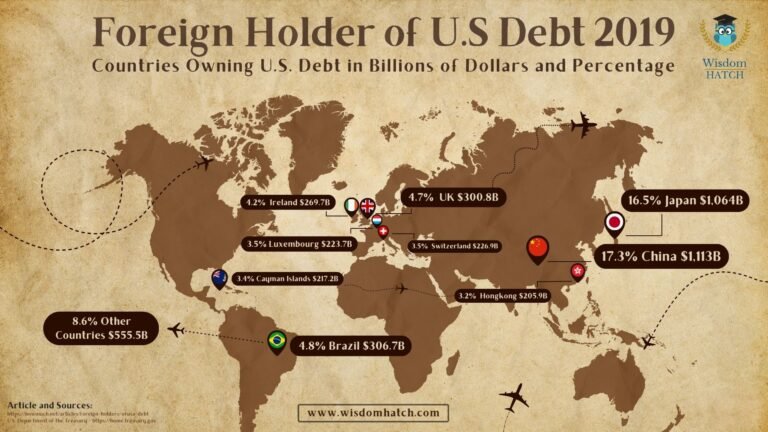
The year 2023 has witnessed a seismic shift in the global economic landscape, marked by a rising interest rate crisis that has far-reaching implications for economies and financial markets worldwide. This crisis is a consequence of the changing interest rate dynamics, especially in the United States.
In this blog, we will delve into the details of this interest rate crisis, its impacts on various aspects of the economy, and what it means for investors.
Here’s what we will cover:
- Understanding the Interest Rate Crisis
- Impact on the Economy
- Stock Market and Investments
- Implications for Indian Economy and Stocks
- Navigating the Interest Rate Crisis
Understanding the Interest Rate Crisis:
From 2008 to 2016, the world existed in a unique economic environment, characterized by historically low-interest rates. In the United States, these rates hovered close to zero percent [1].
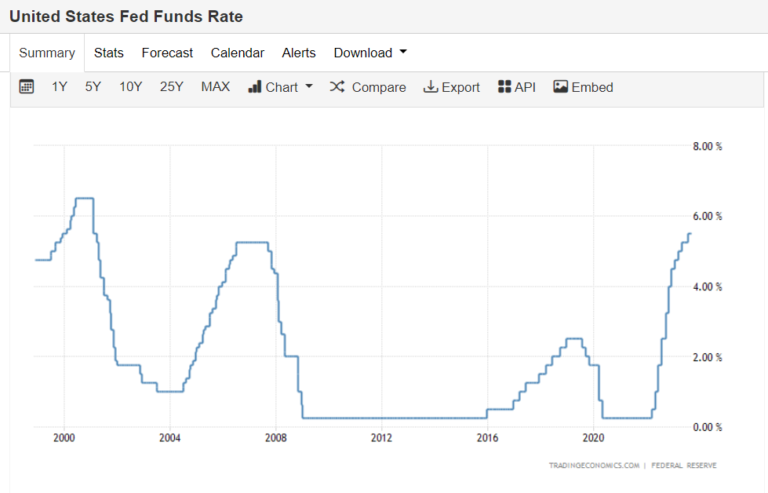
During this period, countries like Japan and China were willing to buy US government debt securities at almost zero percent return.
However, in 2023, this scenario has dramatically shifted, with the interest rate in the US reaching a relatively high 6.5 percent.
This change means that the US government is trying to sell its debt securities at a 6.5 percent interest rate, but countries like China and Japan are no longer as willing to purchase these securities.
This shift has given rise to what is now being referred to as the “interest rate crisis.”
Interest Rate Crisis:
Interest rate here is the prime lending rate which links all your other rates (Home Loans, EMI & all other types of loans).
In India, this is called the repo rate.
This Interest rate has gone through primarily 3 phases:
● 2008-2018:
- This rate in the US was close to 0%
- This led to a lot of free floating money in the economy.
- Countries and business could borrow at cheap rates and so could all of the common people.
- Government can borrow through Bonds, which can be purchased either by the people of the country.
- In the US case, this was purchased by countries like Japan and China.
● 2016-2019:
- Interest rates in the economy spiked up.
- This was primarily caused by the trade wars between USA and China.
- Now to back up this higher rates, the US had to issue bonds with higher rate of return.
● 2021-2023:
- The Interest rates are at around 6.5-7%.
- At this juncture, countries like China are not willing to borrow from the US.
It can clearly be seen from the chart below that [2] [3], China and Japan were the biggest holders of US Debt.

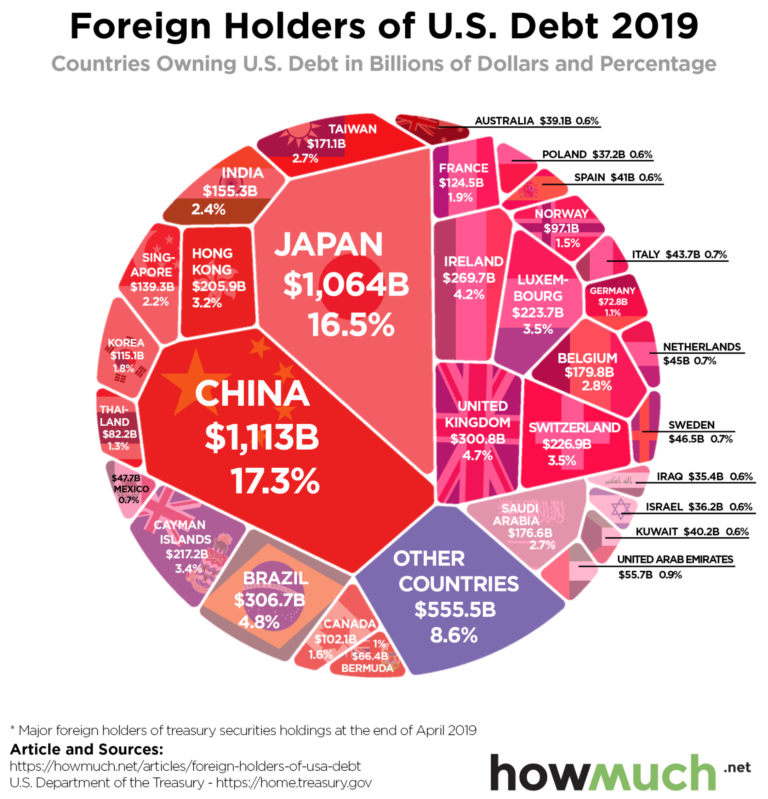
Impact on the World Economy:
The rising interest rates have various significant implications for the economy.
First, the US government will have to repay its debt at a higher interest rate, creating a substantial financial burden.
In fact, it is estimated that the US debt repayment will soon exceed the defense budget, which could lead to cuts in government spending, potentially affecting various sectors of the economy [4].


This crisis may also lead to a delay in interest rate cuts, affecting various asset classes such as stocks and real estate.
Stock Market and Investments:
The rising interest rates have direct consequences for the stock market and investment strategies.
Historically, when interest rates are cut, it results in asset price appreciation, causing stock prices to rise.
However, the expected delay in interest rate cuts and the interest rates settling at 3-4 percent have made the stock market outlook uncertain.
Investors should consider the impact on specific stocks and industries, particularly those vulnerable to high-interest rates. Even when companies report strong financial results, they may face challenges due to the broader economic environment.
In fact, recent market trends have shown that even fundamentally sound companies like SBI Cards faced declines in their stock prices due to the ongoing interest rate crisis.
Implications for Indian Economy and Stocks:
The interest rate crisis in the US is not isolated and can have a ripple effect on the Indian economy and its stock market. For example, Indian companies that rely on foreign borrowing may face increased borrowing costs, affecting their financial health and future investments.
A credit default crisis could also emerge, putting pressure on various financial institutions.
Companies should be evaluated based on their ability to handle financial stress.
Factors to consider include:
● Operating profit margins:
- Higher OPM
● Reserves:
- Cash to survive during troubled times
● Capital expenditure:
- Low capital expenditure business
● Revenue/Profits:
- Should be growing
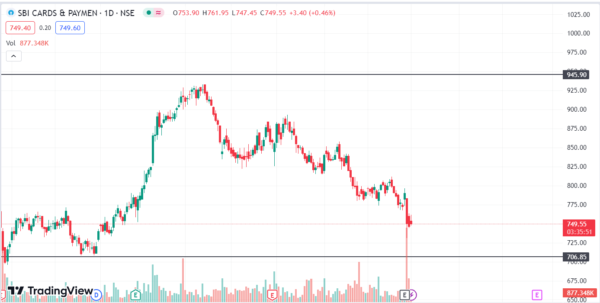
For instance, the ability of companies like SBI Cards to weather the challenges posed by the interest rate crisis is a key consideration for investors [5].
However this problem will be faced by all lending companies and not just SBI Cards.
THis company is fundamentally strong sound as per the framework that we discussed [6].
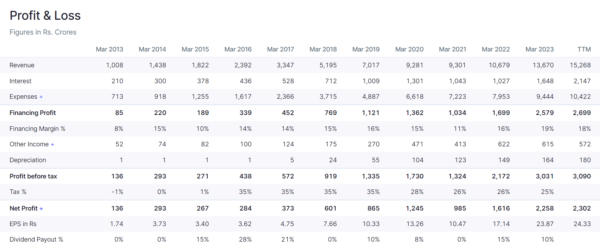
Navigating the Interest Rate Crisis:
Investors should approach this uncertain environment with caution and a data-driven strategy.
Diversifying investments and considering safer options can be a prudent strategy in times of economic uncertainty.
If you are a serious investor and are looking for advanced techniques with a focus on better returns, join my Youtube Community where I give live and timely updates on the Stock Market
Conclusion
The 2023 interest rate crisis is reshaping the global economic landscape, impacting not only the US but also countries like India.
Investors and businesses must adapt to the changing environment, considering factors like interest rates, stock market performance, and the resilience of individual companies.
Staying informed and making data-driven decisions will be essential for navigating the turbulent waters of the financial world in the coming years.
The evolving interest rate crisis poses significant challenges, but with careful planning and strategic investments, it is possible to navigate these challenges and thrive in a changing economic landscape.
- The Global Interest Rate Crisis of 2023 is affecting the global economy and stock markets.
- The crisis is caused by a significant increase in interest rates in the United States.
- It has three phases: 2008-2018 with near-zero interest rates, 2016-2019 with rate spikes due to trade wars, and 2021-2023 with rates at 6.5-7%.
- China and Japan were major holders of US debt during this period.
- The crisis has various implications, including a burden on the US government’s debt repayment.
- The delay in interest rate cuts may affect asset classes like stocks and real estate.
- Investors should be cautious, particularly in industries vulnerable to high-interest rates.
- Indian companies relying on foreign borrowing may face increased costs.
- Diversification and data-driven strategies are advisable for investors.
- Staying informed and making informed decisions are crucial for navigating the crisis and thriving in the changing economic landscape.
[1] https://tradingeconomics.com/united-states/interest-rate
[2] https://usafacts.org/articles/which-countries-own-the-most-us-debt/
[3] https://howmuch.net/articles/foreign-holders-of-usa-debt
[4] https://edition.cnn.com/2022/11/01/economy/inflation-fed-debt-military/index.html
[5] https://www.tradingview.com/
[6] https://www.screener.in/company/SBICARD/#profit-loss
Ever wondered what we get in return for the taxes we pay in India. Whether the Tax Structure is TOXIC? Check out our Blog post on HEAVY TAXES, But we get NOTHING in return
MUST know BEFORE you become an Airbnb host
Medium Article Preksha Chand edit post MUST know BEFORE you become an Airbnb host Medium Article Preksha Chand edit post MUST know BEFORE you become an Airbnb host Medium...
Make more money from your property: Short-term rental [Airbnb]
Medium Article Preksha Chand edit post Make more money from your property: Short-term rental [Airbnb] Medium Article Preksha Chand edit post Make more money from your property: Short-term rental...
GOA Airbnb Laws: What Hosts Need to Know [2024]
Medium Article Preksha Chand edit post Make more money from your property: Short-term rental [Airbnb] Medium Article Preksha Chand edit post Make more money from your property: Short-term rental...





